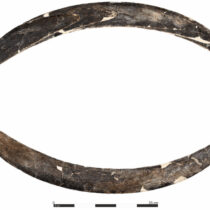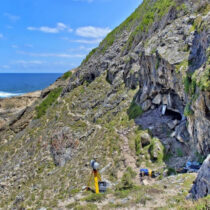Prominent Egyptian archaeologists have renewed their request for the return of the Rosetta Stone from the British Museum to Egypt, 200 years after its decipherment “unlocked” the secrets of hieroglyphic writing and marked the foundation of Egyptology.
So far the archaeologists’ online campaign has collected 2,500 signatures and aims to “tell Egyptians what they’ve had taken from them” said Monica Hanna, dean of the College of Archaeology in the Egyptian city of Aswan.
The Rosetta Stone dates from 196 BC and was found by Napoleon’s army in northern Egypt in 1799. It came into British possession after Napoleon’s defeat under the terms of the 1801 Treaty of Alexandria along with other antiquities discovered by the French, and was shipped to Britain. It has been in the British Museum since 1802.
Bearing engraved inscriptions of the same text in hieroglyphics, the Egyptian vernacular and ancient Greek, it was used in 1822 by the Frenchman Jean-Francois Champollion to decipher hieroglyphics, paving the way to understanding the ancient Egyptian language and culture.
Egyptian archaeologists have previously called for the return of the Rosetta Stone, but hope that the increasing repatriations from Western museums of art treasures taken from countries under colonial rule will help their case.
“I’m sure all of these objects will eventually be returned because the museum code of conduct is changing, it’s just a matter of when” Hanna said. “The Stone is a symbol of cultural violence, a symbol of cultural imperialism. So its return is a symbol of things changing; that we are no longer in the 19th century but are dealing with a 21st century code of ethics.”
A spokesperson for the British Museum said there has been no formal request by the Egyptian government for the return of the Rosetta Stone.
In an emailed statement the spokesperson noted that, starting with the Rosetta Stone in 1799, 28 columns inscribed with the same text written by Egyptian priests have been discovered and that 21 remain in Egypt.
The British Museum opens an exhibition titled ‘Hieroglyphics: unlocking ancient Egypt’ on October 13, which sheds light on the Rosetta Stone.
“The British Museum greatly values positive collaborations with colleagues across Egypt,” the statement added.
Egypt says the return of the art treasures is helping boost its tourism sector which is important for the influx of dollars into the faltering economy. In the coming months, a new large museum is expected to open near the Giza pyramids where the most famous Egyptian collections will be presented.
“Egyptian antiquities are among the most important tourism assets owned by Egypt, distinguishing it from tourist destinations around the world,” Tourism Minister Ahmed Issa said last week at an event marking the 200th anniversary of Egyptology.





